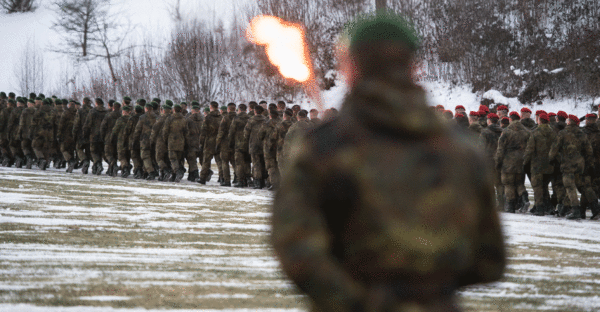
The Cold War dominated most of the pre-2000 era and formed much of the existing world order we live in currently. It made for a black and white vision for conflict in much of the developing world, seen from the point of view by a developed world that took the “us vs. them” perspective. It was easier that way for many. You could choose whether or not to be a capitalist, independent and hate communists, or be a Marxist and work in your community to improve the lives of everyone through forced education and ever failing industrial programs. A lot of horrible actions were justified in that era as well, it can be argued that today might not be much of an improvement.
From an international security perspective, NATO, as well as James Bond films, have lingered on since the Cold War that created them, the latter still being a lot more relevant than the former. NATO was designed to keep a military check on the Soviets in Europe during the Cold War. NATO since then has taken actions outside of Europe, mostly going against their original mandate, and has done little to nothing in quell real conflict in Europe’s east. Ukraine has been in constant conflict over the last few years with Russia. Former Warsaw Pact nations are in fear of invasion, especially Poland who’s nation was extinguished by the Soviets and Germans at the beginning of the Second World War, and still lost half of its territory in an agreement between the Soviets and the Western Allies at the end of the same war.
NATO in Europe may offer few solutions to modern problems. This might be because the problems faced during the Cold War have been reduced, or the fact that the threats from the east have a buffer zone that used to be the Warsaw Pact. The threat to those former Pact members is more immediate, but much of NATO’s focus seems to be directed at NATO itself. The belief that a Cold War will emerge in the east seems to be a burden left to their eastern members, with the West being somewhat content that Russia is present in Syria as opposed to their own tired ex-Iraq and ex-Afghanistan War veterans.
The United States does have a role to play in Europe and in its defense, but it is up to the Europeans to refocus on what role they wish the Americans to play in the region, as well as in other conflict zones in conjunction with European powers. The United States however should not be paying more than their fair share of the defense budgets of other nations when those nations have healthy economies and operate in a modern fashion. Nation states could simply operate their own defense structures, as France had committed to at one point during the Cold War. For cooperation to endure, defense obligations should be made locally before depending on an international entity for national defense. Local communities know best what their needs are and should dedicate themselves to develop them locally. If NATO is to modernize or remain in existence, it must reflect modern needs and not simply be a facilitator for US, Canadian, and other Western Allies to take some military role within Europe.